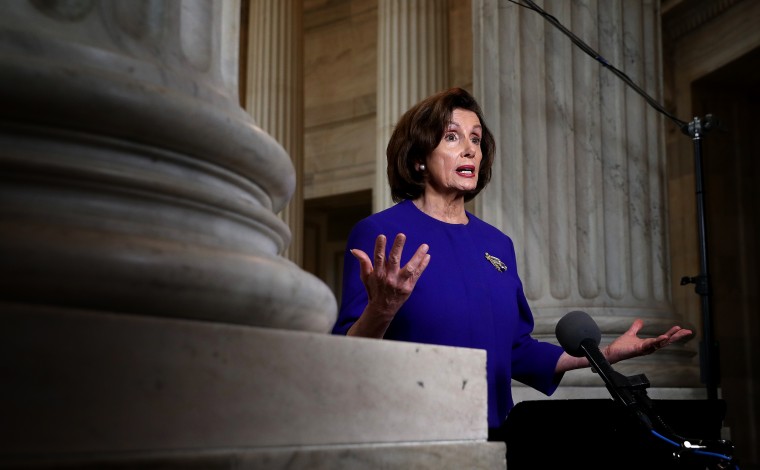One of the hurdles that held up passage of the $2.2 trillion economic aid package last week was concern about oversight: the Trump administration was about to receive an enormous amount of money, and congressional Democrats wanted to see some layers of accountability.
Negotiators worked out a deal, which included the creation of an inspector general to monitor the new law's investments. But even that solution proved contentious when Donald Trump issued a signing statement on Friday, suggesting he had the authority to limit what the inspector general could share with Congress.
A few hours later, House Speaker Nancy Pelosi (D-Calif.) told Rachel on the air that the House will "make sure we know where those funds are being expended." Today, we got a better sense of how the House will conduct that oversight.
House Speaker Nancy Pelosi on Thursday announced a new House select committee to oversee the Trump administration's response to the coronavirus pandemic. On a conference call with reporters, the California Democrat said House Majority Whip James Clyburn, D-S.C., will lead the panel. Pelosi said the committee, which will include Democrats and Republicans, will oversee the Trump administration's handling of the $2 trillion relief package passed last week and the government's ongoing response to the crisis.
The Speaker added that the new select committee -- which, of course, will have subpoena power -- will look out for "waste, fraud and abuse" and "protect against price-gouging, profiteering and political favoritism."
As a procedural matter, it's worth noting that Pelosi's effort does not need to meet with Senate or White House approval; it's within the power of the House Speaker to create such a panel on her own. (Note, for example, that when John Boehner created a select committee related to Benghazi in May 2014, Democrats controlled the Senate and the White House at the time. It didn't matter.)
It's not immediately clear when, or even how, the new panel will get to work, and Congress is not scheduled to return until April 20. That said, it's likely the leadership from both parties will start naming members of the new committee fairly soon.
Meanwhile, there's been some talk in recent days about the creation of an investigatory panel, along the lines of the 9/11 Commission, which would examine what went wrong with the federal response to the coronavirus crisis and what could be done to prevent similar failures in the future. NBC News reported the other day that "informal discussions" on this are already underway.
For what it's worth, there's no reason to think Pelosi's new select committee would serve as a substitute for such a commission. There might be some overlap in lines of inquiry, but it's likely both can and would exist independently. Indeed, there were separate 9/11 investigations from the official commission and Congress.
